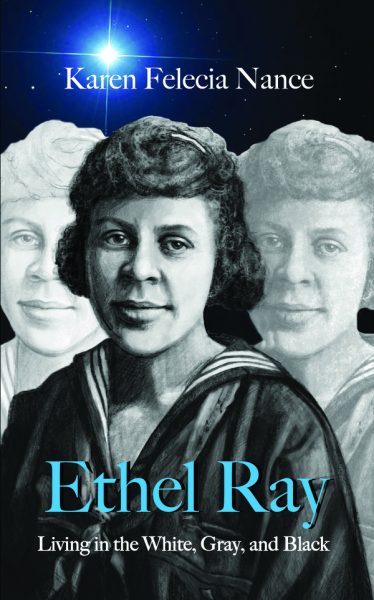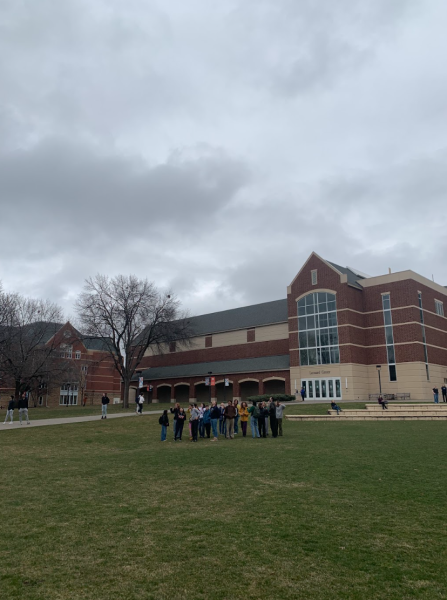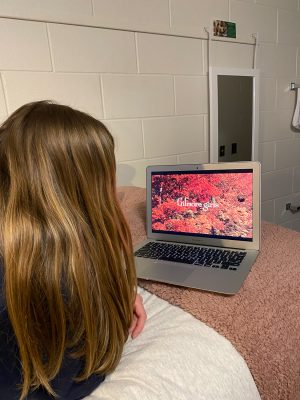When I first saw a ‘More Than Words’ poster hanging in Kirk, I didn’t think much of it. “Just another poster series,” I thought to myself, bringing bags up a stairwell hot enough to melt plastic in. Similar to my choice of long pants that day, it turned out I was wrong on this one.
There is no doubt that Macalester’s latest awareness campaign has become a ubiquitous part of campus discourse, inspiring more discussion in one semester than some Mac campaigns could dream of.
The creators of ‘More Than Words,’ though, have different goals than most initiatives. Diplomatically-worded posters ask us to clean our vocabularies of certain words, phrases they argue are oppressive by nature. It seems an obvious request: what person that supports a fair society could argue that purging these phrases is bad?
Bear with me: I don’t doubt that there is good faith behind the campaign. I know that many people I care about are passionate about its message. But rather than encourage in-person dialogue, it calls for passive self-censorship. Instead of addressing intent, it gives innocuous words more power. And when we judge a campaign on how it challenges a community, ‘More Than Words’ is a turn in the wrong direction, with Macalester students and staff at the wheel.
The problems with MTW are not unique to this campaign: They are outgrowths of assumptions that pervade campus. Most prominent is the view that the power of words lies in content (history or etymology), and not intent. Judith Butler, drawing on theorist J.L. Austin, writes in her work “Excitable Speech” that what a word does when uttered is heavily dependent on context. Hate speech, her main concern, is often only identified by the state after a word has been uttered with illocutionary force, which gives language the ability to perform actions.
Indeed, attempts by authorities to censor words on the basis of “content” can serve to amplify their taboo nature, and subsequently their power. In saying this, she opposes theorists who support state censorship that presupposes words as hate. For Butler, hateful words are better met by allowing dialogue to take the place of erasure: Indeed, talking about potentially harmful words or phrases takes away the power loaned by censorship and allows for a clearer picture of the speaker’s intent. If we are to agree with Butler, MTW starts to show its cracks. Most people on campus, prior to this round of MTW posters, would regard words such as “crazy” and “lame” as slangy adjectives. I only encounter “invalid” after typing my password wrong, or perhaps as an ignorant descriptor for patients under treatment in old novels. Not to mention that lumping in “crazy” with a misused and dehumanizing term like “illegal alien” is laughably warped. With the posters’ reference to these and other words as exclusionary or hateful, they become taboo at Mac, gaining no small amount of transgressive power.
The prioritization of content over intent leads to problematic situations on campus when nasty acts are justified because the receiver’s content is bad. To give a ham-handed example, I remember proudly building a free speech wall as a sophomore,
to have a recent Mac grad/employee of the College casually insult us “children” for giving opinions that opposed his. As the day went on, many people ignored our non-partisan intent (celebrating the First Amendment), instead bashing the venture simply for its affiliation. I know being called a “classist a**hole” while offering a political quiz was hurtful, and I doubt our intent had much bearing on the speaker. Does their speech, clearly intended to insult, not hurt someone more than casual use of the word “derp”?
We, as a learning community, must be earnestly self-critical. Ensuring our initiatives acknowledge the intent of any expression as, at the very least, equal to content in importance is a big step in that.
I suggested earlier that ‘More Than Words’ encourages bad habits within the Mac community to continue. As I see it, MTW is part of an unspoken expectation of passive self-censorship that ennobles this choice over other expression, an expectation
that is building yet another divide on campus. Many Macalester students come fresh out of progressive-minded schools, cosmopolitan backgrounds, or simply have a hunger for a place like Mac; they share an academic vocabulary and social outlooks that may only differ by accent. Inevitably, though, some students (myself included) come from a much less “enlightened” background. I did not know anything about Foucault besides that he had a pendulum named after him. My vocabulary is distinctly Greater NY/Northern NJ, as with many of my mannerisms, and my hometown is poor. Students like me, who I know, come in feeling much less familiar with all the new terms and identities we are expected to know and honor; feeling attacked by this unrealistic Mac expectation of clean speech.
Imagine, then, if you felt that same way coming to Mac, how this expectation would force one to adjust to this ideal, while also managing the very real prospect of letting a bad word slip in class and getting called out harshly by peers, another nasty outgrowth of erasing intent. I am willing to bet that disengaging would look the most painless option.
This expectation of agreement, this constant reminder of the inadequacy of our efforts to speak fairly about everyone, opens a gulf between students. Brownie points go to those with progressive backgrounds, not those with different conceptions of bad speech altogether. The first group becomes stronger in their support for this self-censorship: the second has to just try and keep up. Temporary initiatives like MTW seem to pat the first group of students on the back for their internal dialogues, but both groups suffer from collectively biting our tongues for fear of setting someone off.
Unfortunately, an ideological gap sticks with Mac a lot longer than any campaign. I heard there’s a space right by the science/humanities standoff. Most people here could agree that a person’s vocabulary and their way of communicating are molded into their character, and help form both the viewed and expressed person. Allowing expression while addressing hateful words is not impossible: a focus on intent over content and a healthy dose of good faith helps. No sinkhole will swallow Kagin if we ditch this passive-aggressive approach that favors the viewpoints only universal to a few groups, that ignores the intent of words, preferring to turn the inconsequential taboo. I want to make a bold charge to the people who are running “More Than Words”: shred the posters, step out of the small-group room and bridge this gap.
















Theresa Rampling • Sep 12, 2019 at 3:24 am
There are some attention-grabbing points in time on this article but I don’t know if I see all of them heart to heart. There may be some validity however I’ll take maintain opinion till I look into it further. Good article , thanks and we want more! Added to FeedBurner as well
Blake Short • Sep 10, 2019 at 8:42 pm
Hi! I just wanted to ask if you ever have any issues with hackers? My last blog (wordpress) was hacked and I ended up losing many months of hard work due to no back up. Do you have any methods to prevent hackers?
Keith Smith • Sep 8, 2019 at 4:39 am
Having read this I thought it was extremely informative. I appreciate you taking the time and energy to put this informative article together. I once again find myself personally spending a significant amount of time both reading and posting comments. But so what, it was still worthwhile!